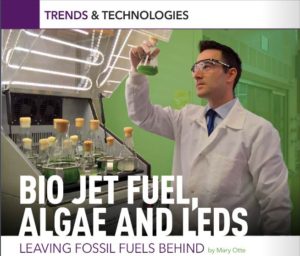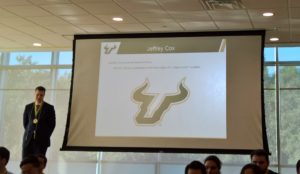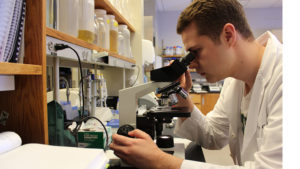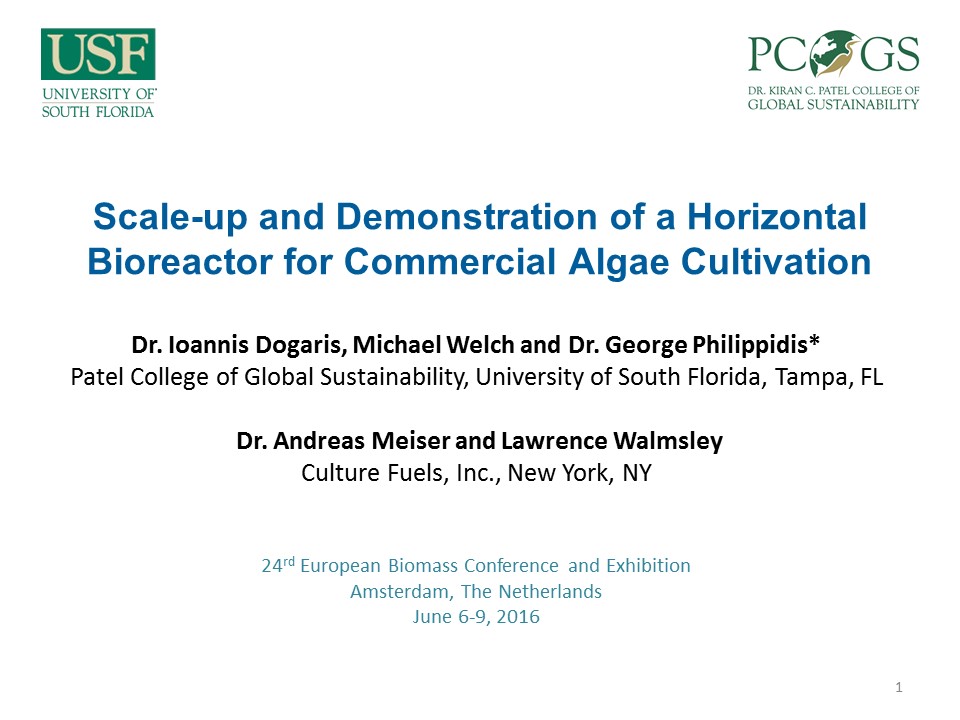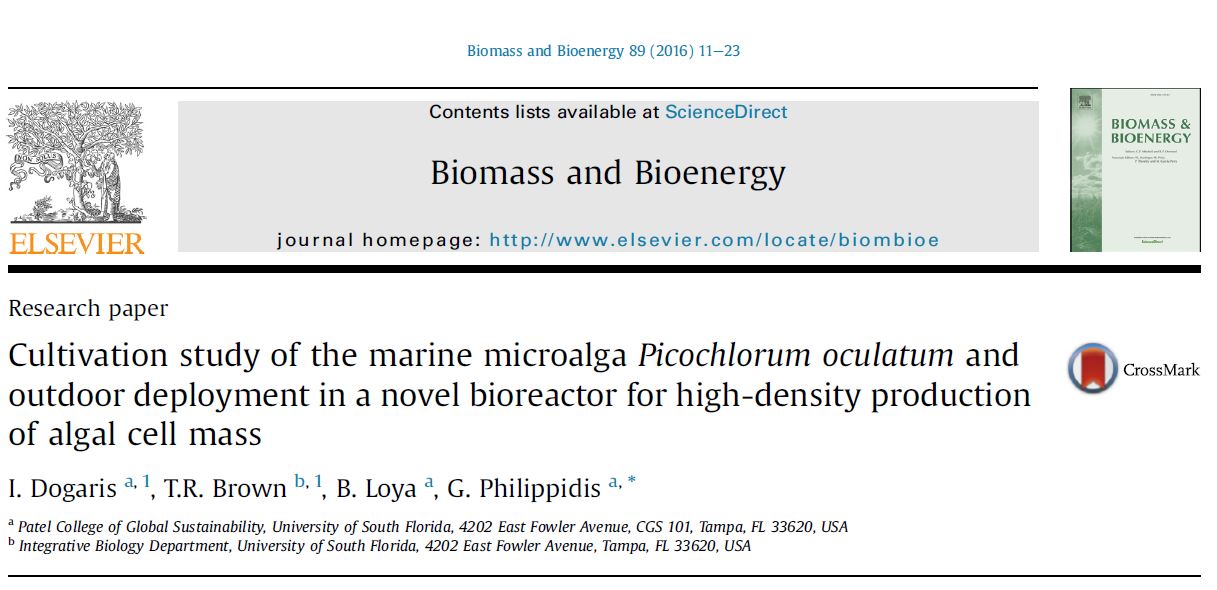Dr. Ioannis Dogaris, postdoctoral researcher at the Biofuels and Bioproducts Lab, USF, presented the group’s research on the “Use of wastewater in a horizontal bioreactor for commercial algae cultivation” at the 2016 Algae Biomass Summit, in Phoenix, AZ, 23-26 October 2016.
Furthermore, Ioannis received the “Young Researcher Award” in Engineering & Analysis for his presentation at the 2016 Algae Biomass Summit.
Download the poster presentation here [PDF].
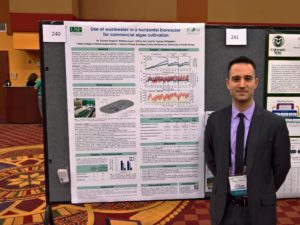
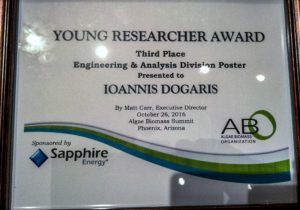
Citation: Dogaris I., Loya B., Cox J., Philippidis G. Use of wastewater in a horizontal bioreactor for commercial algae cultivation. 2016 Algae Biomass Summit, Phoenix, Arizona, October 2016.
Abstract
We have investigated the use of low-quality water sources to cultivate algae in our novel horizontal bioreactor (HBR), which is an inexpensive and modular cultivation system with an enclosed design that protects the culture from contamination and reduces water evaporation. We present the use of landfill leachate for the cultivation of a marine microalgal species, Picochlorum oculatum UTEX LB1998, in an HBR prototype under real-world conditions. Preliminary flask growth experiments verified the ability of the algal strain to grow in landfill leachate without apparent inhibition compared to purified water. During the 150-L HBR outdoor semi-continuous operations over 74 days, P. oculatum was able to grow well in landfill leachate despite harsh semitropical ambient conditions in central Florida, although biomass productivity was lower than its previous cultivations in clean water in the same HBR system and location.
Demonstrating the use of low-quality water sources, such as landfill leachate, for the outdoor cultivation of algae is critical for the sustainability and cost-efficiency of commercial algal biofuel and bioproduct manufacturing as freshwater resources become increasingly scarce in the United States and around the world.
